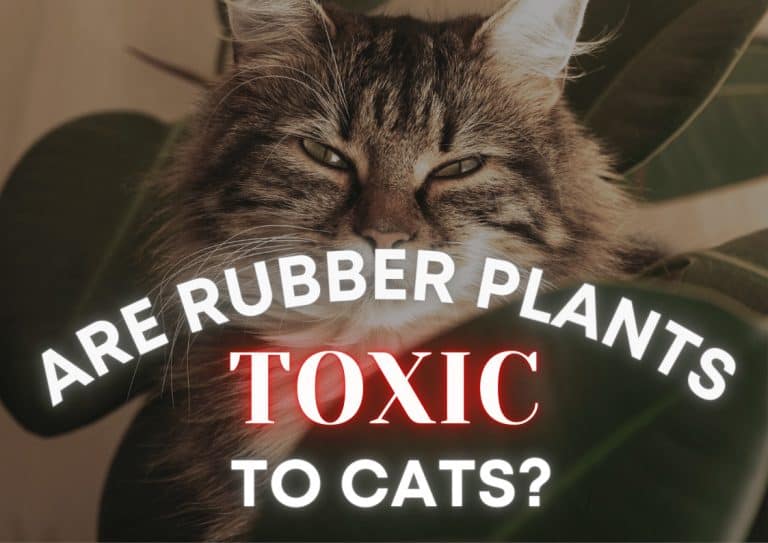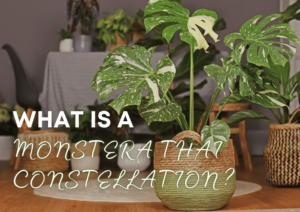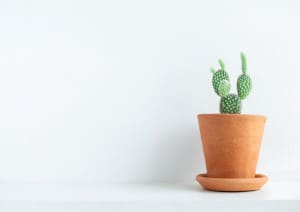Are Rubber Plants Toxic To Cats? [Latex Alert!]
-
Chris Dosser
- October 23, 2022
If you buy something using the retail links in our articles, sometimes we earn a small affiliate commission. This does not impact the products we recommend.
The milky sap known as latex released by a damaged a rubber plant (Ficus elastica) is poisonous to cats. If any rubber plant material is ingested by your feline friend it might experience drooling, vomiting, diarrhoea and loss of appetite.
Plant latex contains several proteins which are intended to protect the plant from sustaining further damage by deterring the attacker, which in our case is a curious cat but could also be herbivores, insects or disease.
Whilst this article looks into whether rubber plants are toxic to cats. If you want to a few recommendations for houseplants that are safe to style a home with cats, we’ve created that shortlist here.

Is it dangerous to keep rubber plants if I have a cat?
Cats are naturally curious and so are perhaps more susceptible than other pets to experiencing the negative effects of toxic houseplants such the rubber plant.
This is especially true if your feline friend is young or just extremely inquisitive.
The best and easiest way to manage houseplants that pose a risk to cats, dogs or any other domestic pets for that matter is to keep them out of reach (on a shelf, at the back of a group of plants) or at least away from frequently visited areas (i.e. on the floor next to the water bowl).
Our own cat is now well over 15 years old and despite having a house full of plants (well, 75!) including many that are reportedly poisonous to cats we’ve encountered no problems whatsoever after creating that little bit of separation.
In fact managing toxic plants is something you’ll have be mindful of with many indoor plant species as it’s not simply rubber plants that are poisonous to cats but also several of the most common houseplants on the market.
Houseplants that are toxic to cats include:
- Philodendrons
- Diffenbachia
- Monstera
- Croton
- Ivy
A really helpful description of why many plants are poisonous to cats is contained in the opening 30 seconds of Garden Up’s video tutorial below. Note: The video doesn’t mention Rubber plants directly but I found it nonetheless in researching content for this article.
Are any varieties of rubber plant safe for cats?
Bred from the Indian rubber tree there are quite a few rubber plant variants now popular as indoor plants, each with physiological differences such as more compact growth, larger leaf structures and of course differences in colors and patterns.
This difference in appearance however doesn’t change the chemical properties of the latex and so all varieties of the rubber plant should be considered poisonous to cats.

Chris Dosser
Co-Founder of Eden Indoors
Chris is a self-taught horticulturist with over a decade of experience caring for houseplants and creating lush, thriving indoor oases. He specializes in Monstera, and by self admission has a serious problem with buying and propagating rare indoor plants!
Similar Posts
What Is A Thai Constellation Monstera: The Essentials
The Thai Constellation Monstera is a rare and highly sought-after houseplant with unique variegated leaves. This article explores the history, care, and propagation of this popular plant.
Drainage Holes in Terracotta Pots: Necessary or Not?
Drainage holes are crucial in plant pots for preventing root rot. But what if you're using porous pots, such as those made from terracotta?



